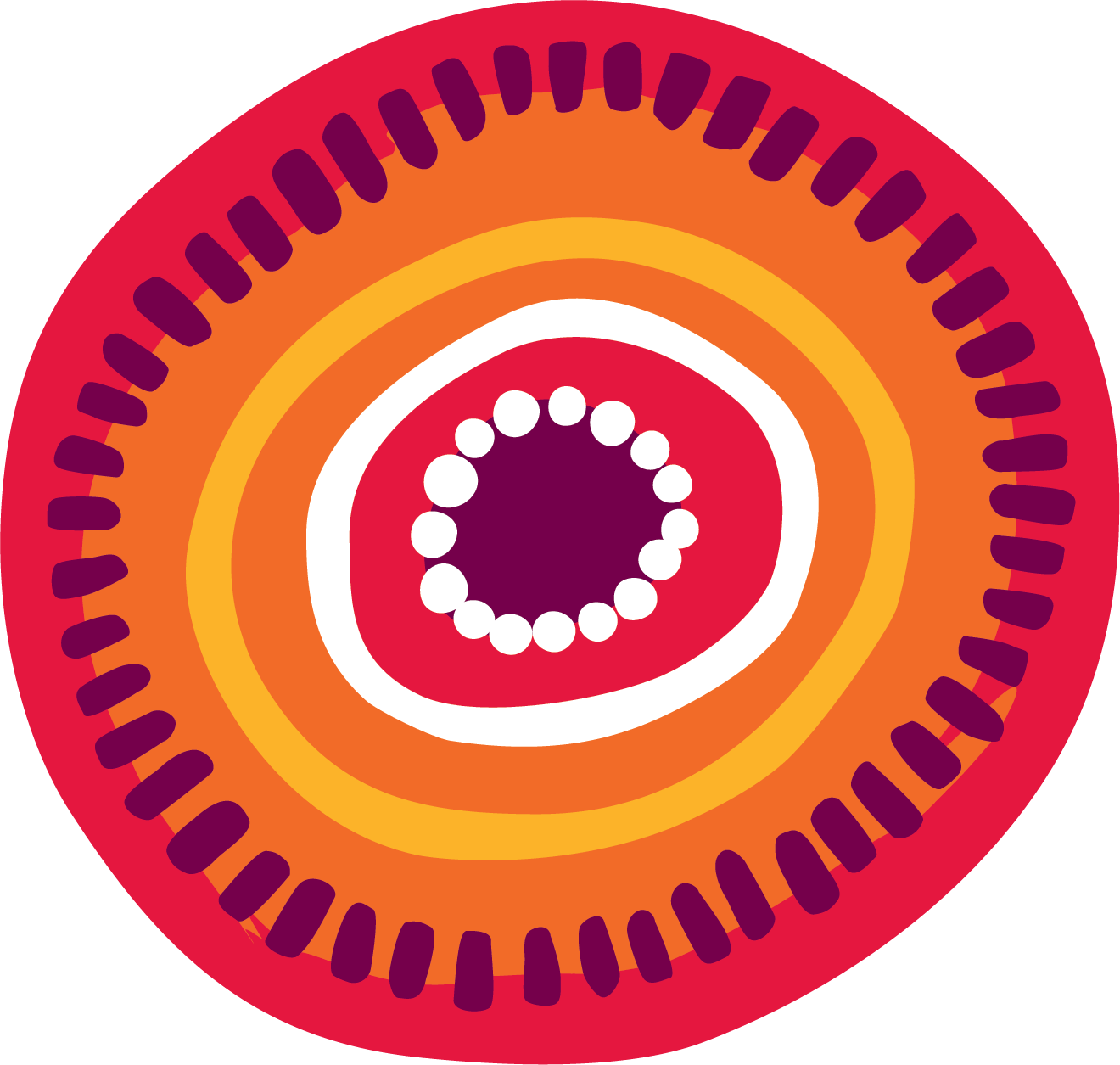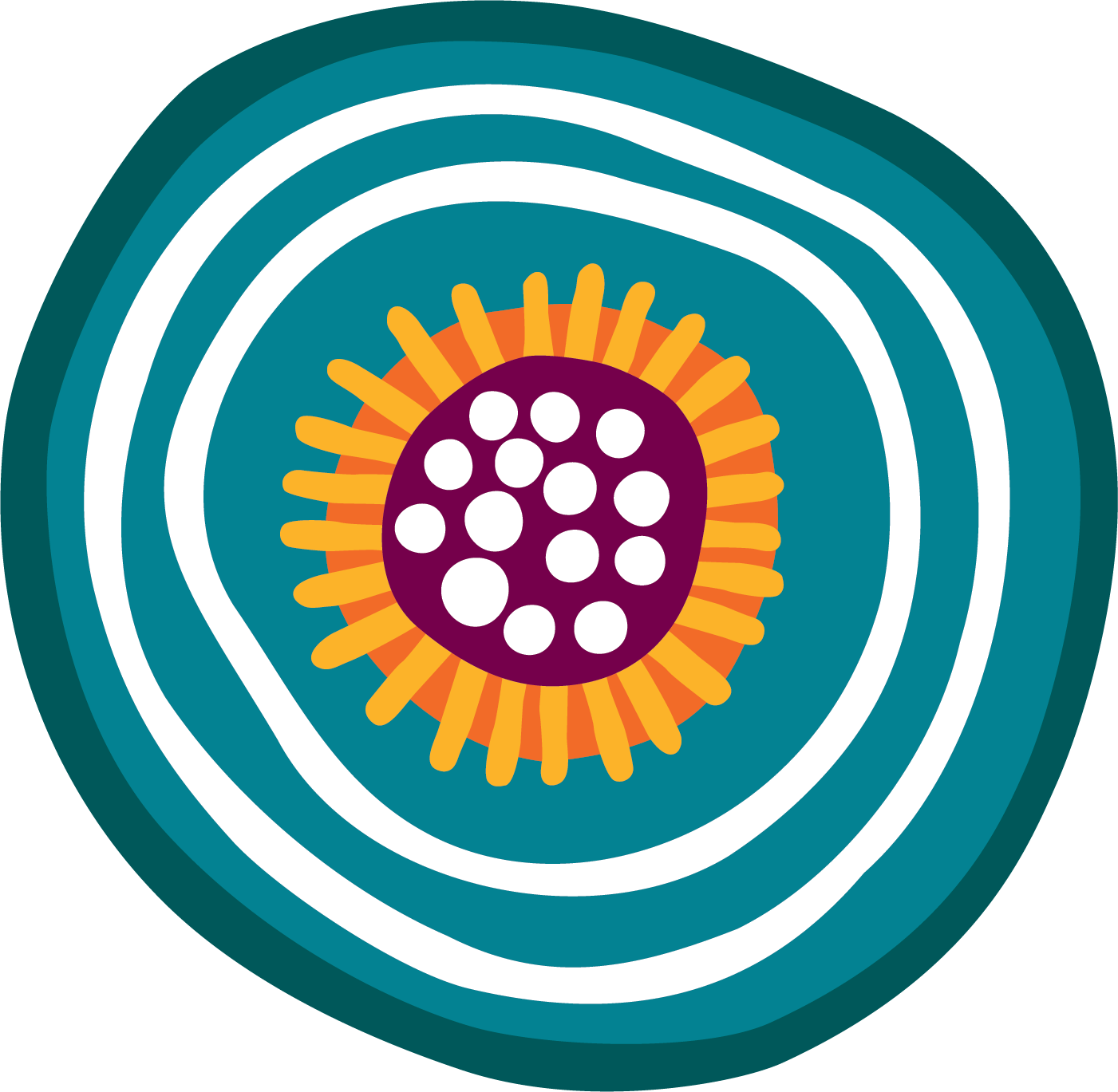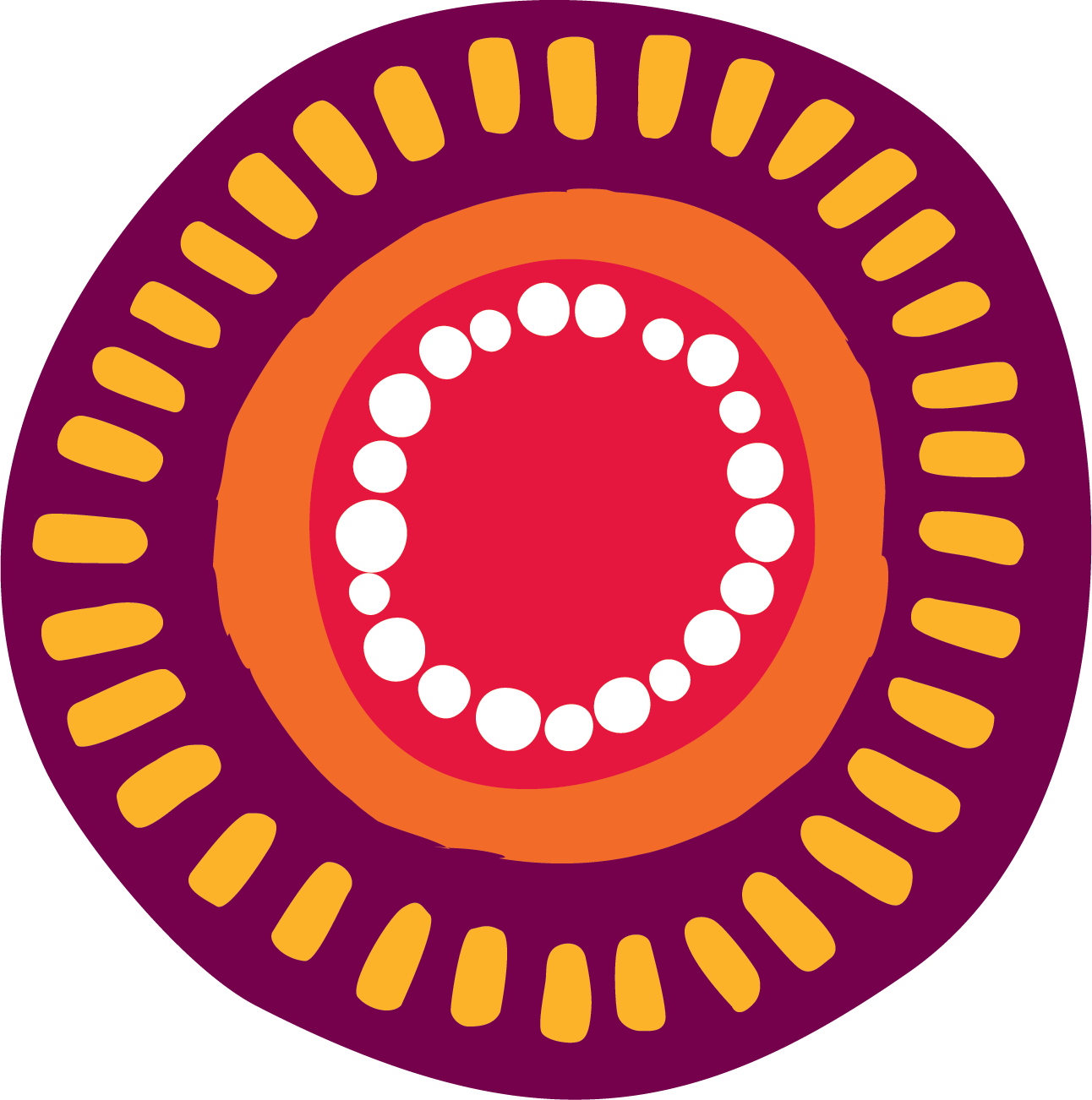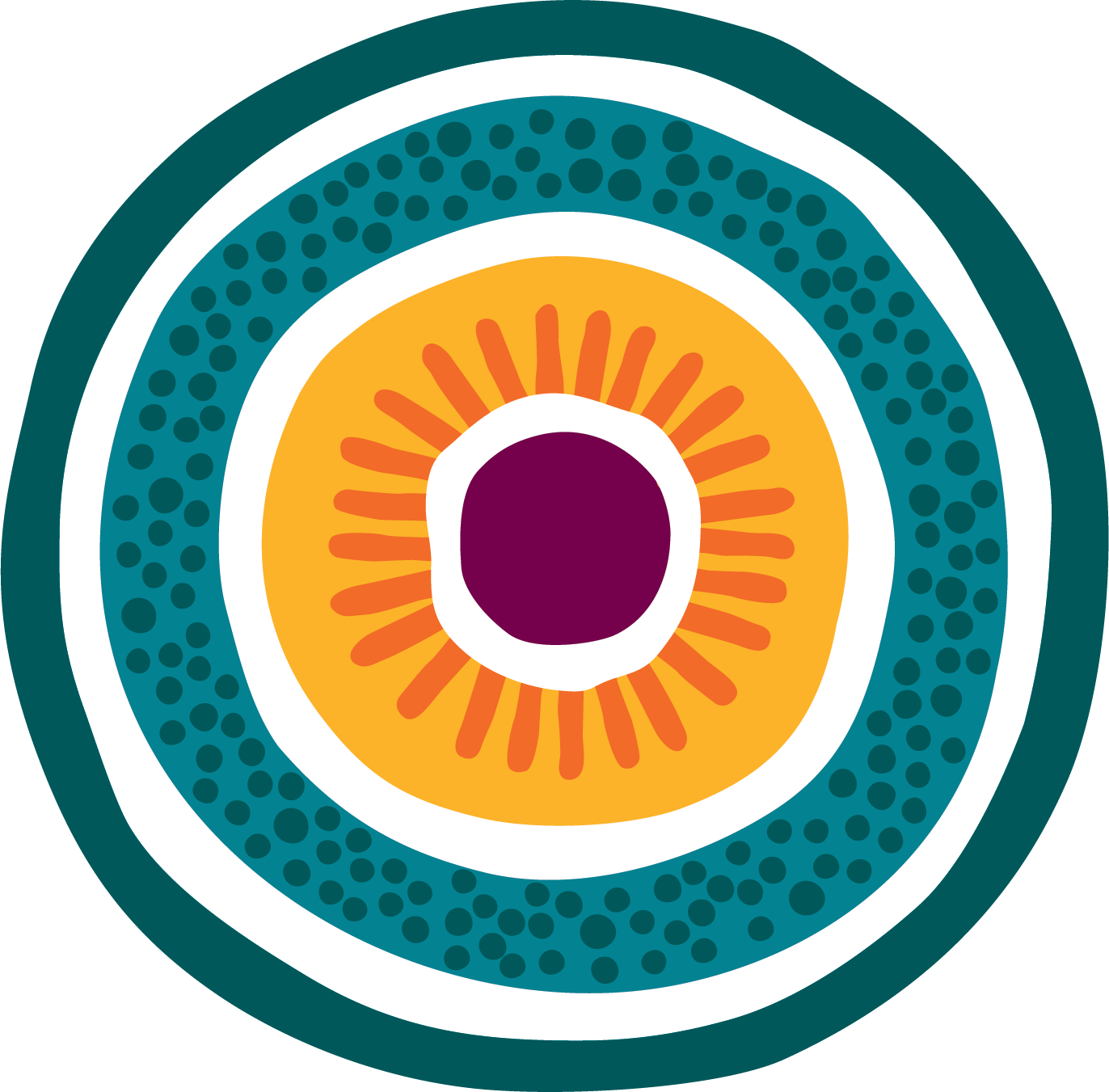Automatic language translation
Our website uses an automatic service to translate our content into different languages. These translations should be used as a guide only. See our Accessibility page for further information.
Aboriginal people make up around 3% of the adult NSW population, but 30% of the adults in prison. Aboriginal young people make up around 8% of people aged 10-17 but 50% of young people in detention. This means that Aboriginal people of all ages are overrepresented in the NSW justice system.
This has been caused by the impacts of systemic disadvantage and intergenerational trauma. Learn about how 'the Gap' was created.
The National Agreement on Closing the Gap gives us targets to reduce the number of Aboriginal people in the justice system.
By 2031, DCJ is aiming to:
In 2024, 1,853 per 100,000 Aboriginal adults were in custody. This is an increase from 1,604 in 2019.
In 2024, 19 per 10,000 Aboriginal young people were in detention. This is no change from the rate in 2019.
We are not on track towards either of these goals.
The national Closing the Gap target is to reduce the rate of Aboriginal people in custody.
For adults, the rate is the number of Aboriginal adults in prison for every 100,000 Aboriginal adults in the population. For young people, the rate refers to the number of Aboriginal young people in detention for every 10,000 Aboriginal young people in the population.
The national target compares our progress to 2019, when the targets were first set.
NSW Bureau of Crime Statistics and Research (BOCSAR) provides quarterly data updates that show the number of adults and young people in custody.
We say 'justice system' to refer to the criminal justice system. This includes police, courts and custody. It can also include alternative programs to help someone avoid contact with courts or custody. Learn more about the criminal justice system.

When someone comes into contact with the justice system, they may receive a warning, caution, fine, a Court Attendance Notice, or be arrested.
Young people might be asked to attend a Youth Justice Conference instead.

If someone is charged with an offence, they will be given a court date.
Either the Police or the Court will decide if the person is granted bail and if they will remain in the community until their court matter is finalised.
If bail is refused, they are kept in custody. This is known as remand.

When someone is found guilty by the Court, the Court can decide on a range of sentencing options, either in the community or in custody.

Once someone is released from custody, they must transition back into their community which may mean finding a suitable place to live, going back to school or work.
In June 2025, 44% of adults in custody and 71.8% of young people in custody were on remand.
Remand is on the rise, while being sentenced to custody is decreasing.
We can reduce the number of people in the justice system by focusing on reducing the number of people on remand. This makes remand an important part of achieving our goals.
To reduce the number of young people in contact with the justice system, we are working to address the underlying causes of offending. This includes improving young people’s access to cultural connection, education, mental health support, and employment.
The Safe Aboriginal Youth program aims to keep young people who are on the streets late at night safe and give them organised youth activities. The service transports young people to their homes or another safe place during the night, to keep them safe. The programs are run by local Aboriginal owned organisations who have connections to the community.
Justice Reinvestment is a long-term community led approach that is redirecting funding from prisons into communities. Local Aboriginal owned organisations are working with their communities to find local solutions for Aboriginal people in contact with the justice system. In 2025, the NSW Government invested up to $9.8 million in a new grant program for Aboriginal organisations. These grants have now been awarded in six communities.
We are investing $13.4 million towards the Therapeutic Pathways for Children project. This funding will go towards Aboriginal-led, community-driven initiatives to reduce the number of Aboriginal children in the justice system. We are partnering with the Aboriginal Legal Service ACT/NSW to deliver these projects and make sure they are trauma-informed and culturally safe. They will divert at-risk Aboriginal children away from the justice system and give them a pathway to a safer, stronger future.
Youth Justice has a range of programs to support young people who have had contact with the justice system. Visit the Youth Justice website to explore programs, including:
Youth Justice also has a range of offence-focused intervention programs designed to change negative patterns of behaviour and reduce rates of re-offending.
Being diverted means reducing young people’s contact with the justice system. The means the young person’s matter may not be dealt with in court, like receiving a fine, warning or caution, or attending a conference.
Youth Justice Conferences are a meeting between a young offender, the victim and other people who know about the offence. It focuses on repairing the harm caused by the offending behaviour and on restoring relationships within the family and the community. This is not only a diversion but a restorative justice process.
The Youth Koori Court is a modified Children’s Court process that aims to involve Aboriginal young people, their families and their communities in the court process. The Youth Koori Court identifies risk factors for young people like homelessness, disengagement from education, drug and alcohol issues or other health issues. An action and support plan is then developed to help the young person with these risk factors and improve their connection with their culture and their community.
Research shows that contact with the justice system is harmful for Aboriginal young people. Even one night in custody makes a young person much more likely to reoffend.
The Short-Term Remand Program is a project to reduce the number of young people on short-term remand. It is being trialled in South Sydney and Wagga Wagga with young people who may be refused bail by police before they are granted bail in court. The program provides the necessary supports to keep the young people out of custody where possible.
Bail and Accommodation Support Services provide support to some young people who receive bail but can’t return home. The service can give the young person accommodation and other supports to help them leave custody and return to their community. The services prioritise referrals to accommodation providers that actively support the cultural safety and wellbeing of young people.
We have funded the Aboriginal Legal Service to deliver the Bail Advocacy Program for young people. The program aims to reduce the number of young people on remand and support better informed decisions around bail. It gives holistic, culturally responsive support to the young people and involves a network of trained Aboriginal support staff. It’s currently supporting young people in South Sydney. We’re investing $9.99 million over four years into the two Bail Advocacy Programs for young people and women.
We are developing the Aboriginal Throughcare Strategy in partnership with the NSW Aboriginal Legal Service and Aboriginal communities. The Strategy will guide the design of new Aboriginal-led programs that assist people before and after they leave custody and provide culturally safe support to help reintegration and reduce reoffending. We are investing $19.9 million over the next three years to deliver this strategy.
The Casework Support Program offers a range of practical and strengths-based supports that help young people address the reasons for their offending and develop positive alternatives. The program can provide financial assistance, getting ID, re-engaging in education and training or finding work. It also provides young people with support to strengthen cultural connections.
There are a number of factors that may contribute to someone being involved in the justice system, which can include mental health, substance abuse, a history of incarceration, or being a victim of crime.
We can strengthen opportunities for Aboriginal people and reduce contact with police by improving other life outcomes including cultural connection, education, housing, mental and physical health and employment. Increasing opportunities for people to access culturally appropriate support or diversion can help support people and limit or even prevent criminal activity.
Justice Reinvestment a long-term community led approach that is redirecting funding from prisons and into communities. Local Aboriginal owned organisations are working with their communities to find local solutions for Aboriginal people in contact with the justice system. In 2025, the NSW Government invested up to $9.8 million in a new grant program for Aboriginal organisations. These grants have now been awarded in six communities.
Bail is a Court Order that lets someone remain in the community while they are waiting for their matter to be dealt with at court. If the Police or the Court refuse bail, the person is placed in custody until their court matter is finalised. This is called remand.
Nearly half of the Aboriginal adults in prison are on remand. This is the key driver of the Aboriginal population in custody. Reducing both the number of people on remand and the length of their stay is a key factor in achieving our targets.
We have funded the Aboriginal Legal Service to deliver the Bail Advocacy Program for women. The program aims to reduce the number of women on remand and support better informed decisions around bail. It gives holistic, culturally responsive support to keep women in community and support safe, connected families. It involves a network of trained Aboriginal support staff and is currently active in Redfern and Newcastle. We’re investing $9.99 million over four years into the two Bail Advocacy Programs for young people and women.
When someone is found guilty by the Court, they can be sentenced to a range of penalties. In the most serious cases, people can be sentenced to custody.
DCJ has a range of diversion programs to reduce the number of people sentenced to custody. They address the underlying reasons that people come into contact with the justice system. These programs can help address:
These programs are available to anyone, but Aboriginal people may receive specialised support.
Circle Sentencing is an alternative sentencing process for Aboriginal adults convicted of an offence in the Local Court of NSW. The Magistrate of the case works with Aboriginal Elders, victims and the offender’s family to come to an appropriate decision about sentencing. It allows Aboriginal communities to be involved in the sentencing decision which ensures sentencing outcomes are culturally informed and appropriate.
The Walama List is an alternative sentencing procedure at District Court Downing Centre. It aims to reduce the number of Aboriginal people in custody in NSW and increase community participation and confidence in the criminal justice system. Elders and Respected persons provide advice and cultural expertise to the Walama List Judge to inform sentences and case plans. The process takes a therapeutic and holistic approach in order to address underlying needs and risk factors and reduce reoffending.
Someone who has previously been incarcerated is less likely to reoffend if they have strong support systems in custody and when they are released.
Leaving with an employment opportunity also decreases the change of reoffending.
The Aboriginal Domestic and Family Violence Court Support Program supports Aboriginal people going through a family violence matter in the Moree or Gunnedah Local Court. Aboriginal people using violence, experiencing violence, and their families can use the service. It gives holistic, and culturally responsive support, healing and recovery and looks at the underlying causes of violence. You can register online.
We are developing the Aboriginal Throughcare Strategy in partnership with the NSW Aboriginal Legal Service and Aboriginal communities. The Strategy will guide the design of new Aboriginal-led programs that assist people before and after they leave custody and provide culturally safe support to help reintegration and reduce reoffending. We are investing $19.9 million over the next three years to deliver this strategy.
The What’s Your Plan? program aims to reduce domestic violence reoffending by increasing understanding and compliance with ADVOs. What’s Your Plan? is an evidence-informed approach which uses small behavioural interventions (such as text reminders and simplified ADVOs) to promote understanding and engagement with the ADVO and court process, and help to reduce reoffending.
Read about the work we're doing to support improve outcomes in other areas.
Last updated: